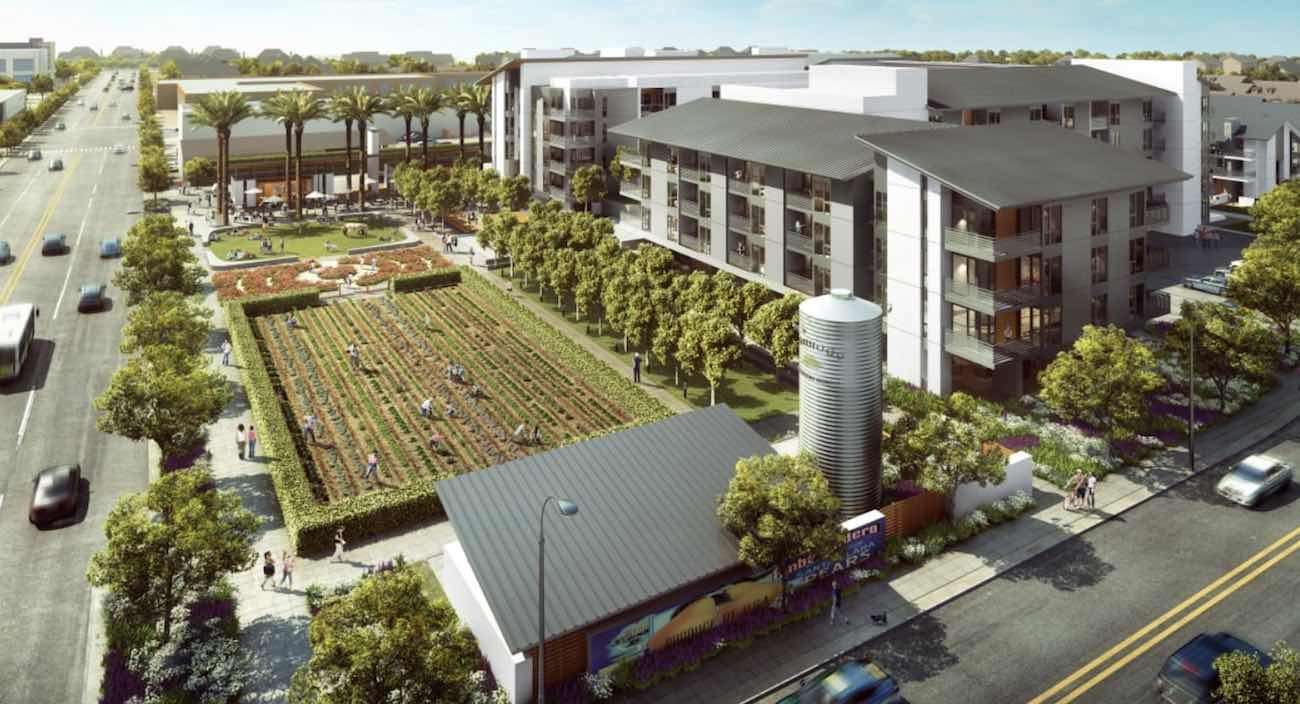A Swiss Resort is Swaddling the Mountain in Blankets to Stave Off Glacier Melt in the Summer
Swiss glaciers get covered in cozy fleece blankets to keep them cold during wintertime, preventing melting of snow and ice at ski resorts.

Have you ever wanted to live on a farm, but without having to do all the hard work or needing to drive an hour to reach a major city?
In San Francisco, a mixed-income apartment complex has gone up in the neighborhood of Santa Clara that comes with its own 1.5 acre farm, managed by a professional urban farming company, which also welcomes help from residents.
The Agrihood building consists of 361 units, 181 of which are priced below market rate— 10% are reserved for moderate income renters, and 165 for low-income seniors and veterans. The complex also contains 30 townhomes and features a central 1.5 acre organic farm that can produce 20,000 pounds of food every year.
Each week the produce is brought to an on-site location and sold at a deep discount for residents. The full list of produce is on Agrihood's website, and includes superfoods, comfort foods, orchards, perennial foods, and native foods.
"Our goal throughout this endeavor has been to provide the affordable housing that we urgently need in Santa Clara through a truly creative, community-driven process," writes the brochure.
"Not only are we providing a really unique living experience for the residents that live on the property, but we're also taking a very deliberate approach to encouraging the health and wellness of our residents by incorporating the farm, hopefully, into their daily and weekly lifestyles," Vince Cantore, who is vice-president of Core Companies, the firm leading the Agrihood project, told Fast Company.
Attempting to address the housing shortage in San Francisco, Agrihood is actually built on the site of what used to be one of the many orchards that covered Santa Clara in decades past.
Urban farming and gardening is growing in popularity, with some cities, parks, or neighborhoods attempting to include community gardens, forest gardens, or urban farms into development plans.
It's a critical way that urban areas can increase food security, reduce the carbon footprint that food racks up during transportation, and increase access to healthy food for low-income communities in food deserts.
SHARE the Unique Housing Model on Social Media…
Be the first to comment